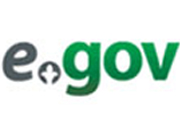Top 10 questions compuisory health insurance
The head of the Social Insurance Fund answered the top 10 questions of the population
From January 1, 2020, the work of call-center 1406 has been switched to 24/7/365.
In less than a month since the introduction of the compulsory health insurance, the call-center has received 14,141 appeals from citizens.
The Fund has compiled a selection of Top 10 frequently asked questions from the population on the compulsory health insurance, to which the Chairman of the Board of the Fund, Aybatyr Zhumagulov, answered.
-
How and where can I find out that I am insured?
– Such information can be found on the e-government portal ( https://egov.kz/ ), on the websites of the Ministry of Health of the Republic of Kazakhstan ( http://dsm.gov.kz/ ) and the Fund ( https://fms.kz/ ), via Telegram bot ( https://t.me/SaqtandyryBot ) and chat bot in WhatsApp (at +7 700 103 1406).
Taking this opportunity, I want to remind you that until April 1 of this year, all citizens are served as insured in the compulsory health insurance system and can receive medical services in full. No one has the right to deny them the required medical services. But during this grace period, they must insure themselves and become participants in the compulsory health insurance.
Let me remind you that from April 1, 2020, uninsured patients will also receive medical care, but only within the guaranteed free volume, other services – on a paid basis. Therefore, it is important to obtain the status of the insured by March 31st.
-
I have a PI. How and when do I need to pay for compulsory health insurance?
– If you are an individual entrepreneur, then pay contributions for compulsory health insurance no later than the 25th day of the next month. And if you work on a patent, then the payment must be made at the time of paying the cost of the patent.
The contribution rate for individual entrepreneurs is 5% of 1.4 times the minimum wage. In 2020, it is 2,975 tenge.
By the way, if you have employees on your staff, then as an employer you must make a deduction for them from the general payroll in the amount of 2%, as well as withhold 1% from the salary of each employee as his contribution to the compulsory health insurance.
-
I work from home, not officially. Do I have to pay for compulsory health insurance and why? If so, how, when and how much?
– In this case, you are one of the informally employed persons who receive income without registering as an individual entrepreneur, and do not have employees. You can not make contributions for compulsory health insurance, but then you will not be insured, which means you can only receive guaranteed medical care (ambulance, emergency care). To count on the services that are included in the compulsory health insurance (admission of specialists, research services, diagnostics, operations), you need to insure yourself and make a single aggregate payment (CAP) monthly. At the same time, CAP payers do not provide tax reporting.
What other opportunities does it provide?
The CAP, in addition to the compulsory pension contributions, includes mandatory pension contributions. That is, by paying the CAP, you provide yourself with a basic pension payment (depending on the length of service in the system). And the longer you pay, the more pension you will receive in the future, since seniority will be considered.
And since you also make social contributions (they are also included in the CAP), you have the right to receive social benefits if you lose your ability to work, lose your breadwinner, during pregnancy and childbirth, when adopting or adopting a child, caring for a child.
-
What is the CAP and how is it calculated?
– The CAP, as I noted above, is a single aggregate payment. It is calculated from the size of the monthly calculation index (MCI). For urban residents – this is 1 MCI (2651 tenge in 2020), for rural residents – 0.5 MCI (1 326 tenge in 2020).
At the same time, the CAP includes:
-
individual income tax;
-
pension contribution;
-
contributions for compulsory health insurance
-
social Security contributions.
Moreover, the share of contributions for compulsory health insurance in the CAP is only 1060 tenge for urban and 530 tenge for rural residents.
5. If I am not an employee for whom the employer makes deductions and contributions under the compulsory health insurance, then how can I pay on my own?
– In this case, you are an independent payer of the compulsory health insurance (such as, for example, individual entrepreneurs, self-employed population, officially unregistered unemployed). You can insure yourself by paying the CSMI fee through the cash desks of second-tier banks, Kazpost, Halyk Bank terminals, self-service terminals “Cash 24” and through the Kaspi.kz mobile application. And the amount of contributions depends on what status you have. Above, I talked about schemes for different categories of payers.
6. I want to be examined in a private clinic, but in my clinic they refuse to give a referral there. What do we have to do?
– It should not be. Your local doctor can refer you to any medical organization, including your choice, if it has an agreement with the Foundation. The list of suppliers can be viewed on the Foundation’s website ( https://fms.kz/ru/content/postavshchiki-fonda ). It should be noted that a referral can only be obtained if there is a medical indication.
I would like to draw your attention to the fact that one of the main tasks of the Foundation is to protect the rights of patients. Therefore, we constantly monitor the quality of the services provided and try to quickly resolve emerging issues.
7. I need to have an MRI, but they refuse me. Why don’t they give direction?
– To receive CT or MRI services, you need a referral from your local doctor. It is issued only if there are appropriate indications, since this procedure is accompanied by electromagnetic radiation and it cannot be done just like that, unnecessarily. That is, they could refuse to provide you with a referral only if there were no medical indications for such examinations.
8. Can I be treated by a dentist for free according to compulsory health insurance?
– Free dental services within the framework of the compulsory health insurance can be received in emergency cases by children under 18 years old, pregnant women, participants in the Great Patriotic War, disabled people, pensioners, mothers with many children (awarded with pendants “Altyn alka”, “Kumis alka”), recipients of targeted social assistance, patients with social significant diseases or diseases that pose a danger to others.
If the treatment is planned (not emergency), then only pregnant women and children under 18 years old are entitled to free dentistry under the compulsory health insurance.
All other categories of patients receive dental services on a paid basis.
I will add: if your medical organization does not have a dentist, then you should be given a referral (if indicated and in accordance with the indicated cases and categories) to dentistry, which is on the list of the Fund’s suppliers.
9. For study, you need to provide a certificate 086-y (083-y). Can this be done for free under the compulsory health insurance?
– Certificates 086 and 083 are not included in the OSMS package. This state service is provided by medical organizations on a paid basis.
I would like to explain that these certificates are issued for a periodic medical examination, in order to obtain a doctor’s opinion on the professional suitability of a patient entering studies or work. It is not classified as preventive. But the patient has the right to undergo a preventive examination on a free basis once a year.
10. What will happen in case of death of the patient with the accumulated money, will it be transferred to relatives?
– No, the transfer of contributions is not envisaged, since social health insurance is not a funded system. Medical assistance is provided regardless of the size and amount of contributions. That is, all categories of the population have equal access to medical services. This is the principle of equal access and system solidarity. Therefore, we have chosen such a model so that people with different incomes are served equally, impartially.
__________________________________________________________________
Public Relations Department of the Social Health Insurance Fund NJSC
Rashida Mukhametkalieva
Tel .: +7 (7172) 647 027
+7 775 996 0070
E-mail: r.mukhametkaliyeva@fms.kz














Всего комментариев: 0